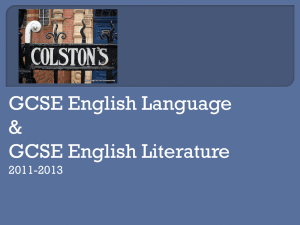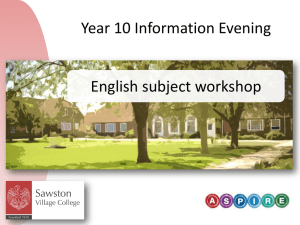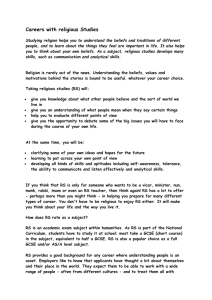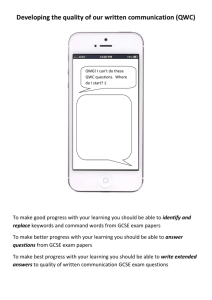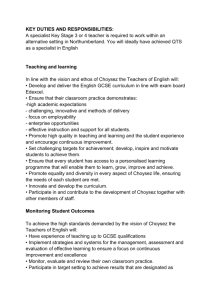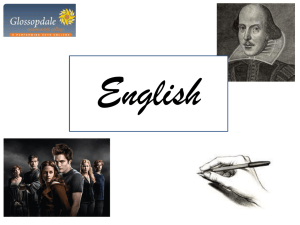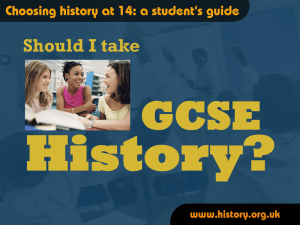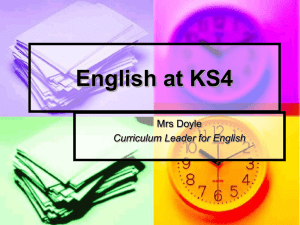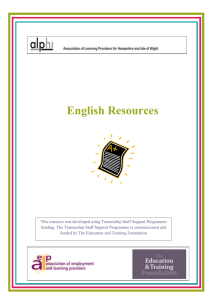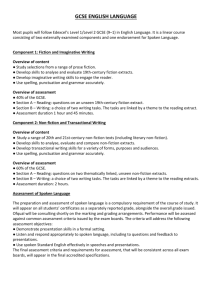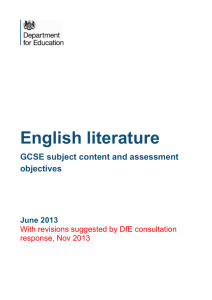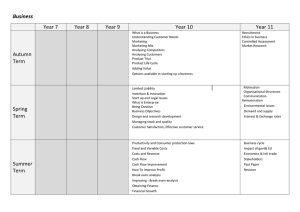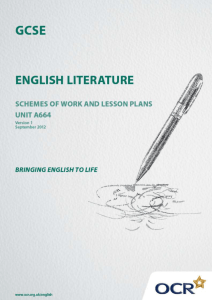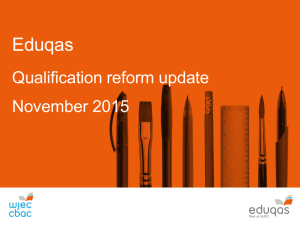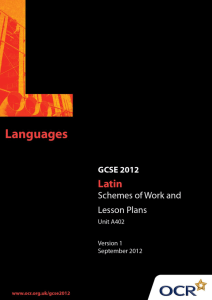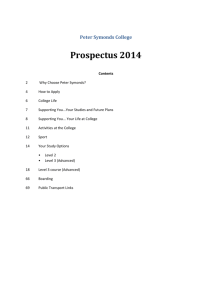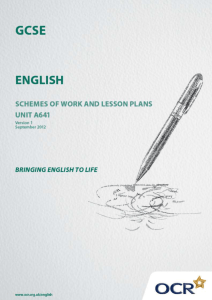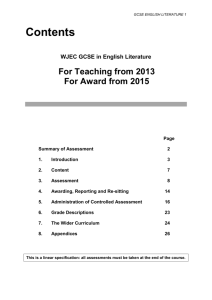GCSE English at SVC - student overview
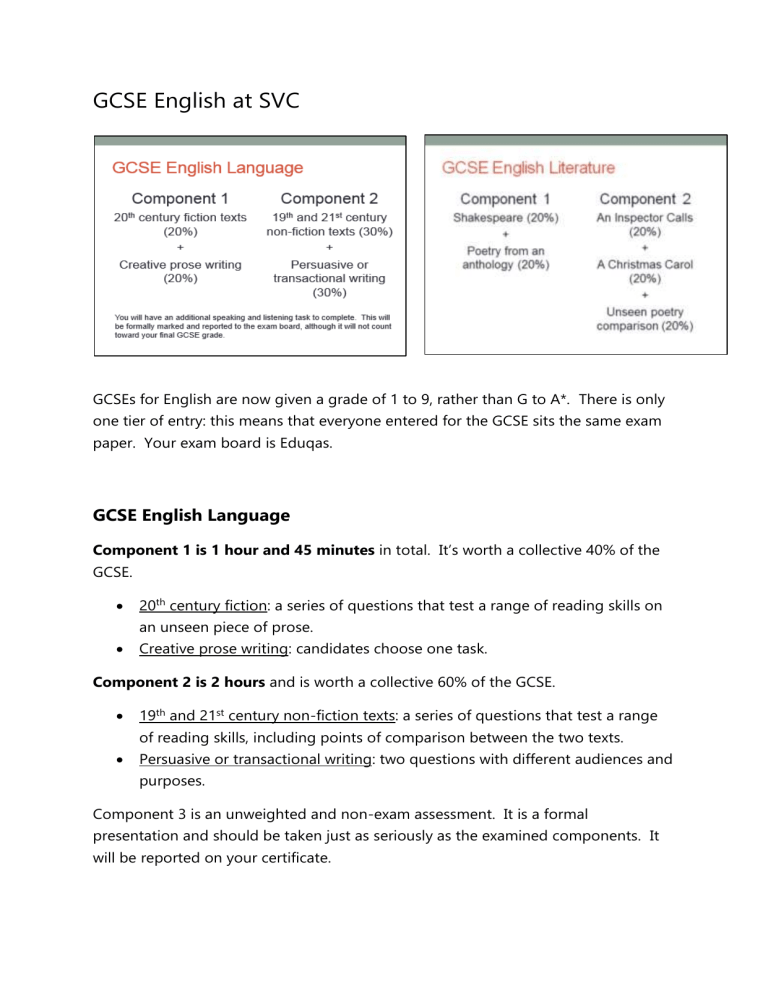
GCSE English at SVC
GCSEs for English are now given a grade of 1 to 9, rather than G to A*. There is only one tier of entry: this means that everyone entered for the GCSE sits the same exam paper. Your exam board is Eduqas.
GCSE English Language
Component 1 is 1 hour and 45 minutes in total. It’s worth a collective 40% of the
GCSE.
20 th century fiction: a series of questions that test a range of reading skills on an unseen piece of prose.
Creative prose writing: candidates choose one task.
Component 2 is 2 hours and is worth a collective 60% of the GCSE.
19 th and 21 st century non-fiction texts: a series of questions that test a range of reading skills, including points of comparison between the two texts.
Persuasive or transactional writing: two questions with different audiences and purposes.
Component 3 is an unweighted and non-exam assessment. It is a formal presentation and should be taken just as seriously as the examined components. It will be reported on your certificate.
GCSE English Literature
Component 1 is 2 hours long and worth a collective 40% of your GCSE.
Shakespeare: one extract and one essay question. You will be studying either
Romeo and Juliet, Macbeth or Othello depending upon who your teacher is.
Poetry from 1789 to the present day: two questions on two different poems from your anthology. You will be given one poem by name and you will have to choose the second poem from memory. The second question will have some element of comparison within it.
Component 2 is 2 hours and 30 minutes long. It is worth a collective 60% of your
GCSE.
Post 1914 Drama (you will be studying An Inspector Calls): one source based question.
19 th century prose (you will be studying A Christmas Carol): one source based question.
Unseen poetry from the 20 th /21 st century: two questions assessing your reading. One of these questions will involve comparisons.
You will not be allowed to take any of your texts into the exam with you – they are all closed book examinations. It is really important that you read all of the texts in full and remember that the more you read them, the better you’ll be prepared for the exams.

